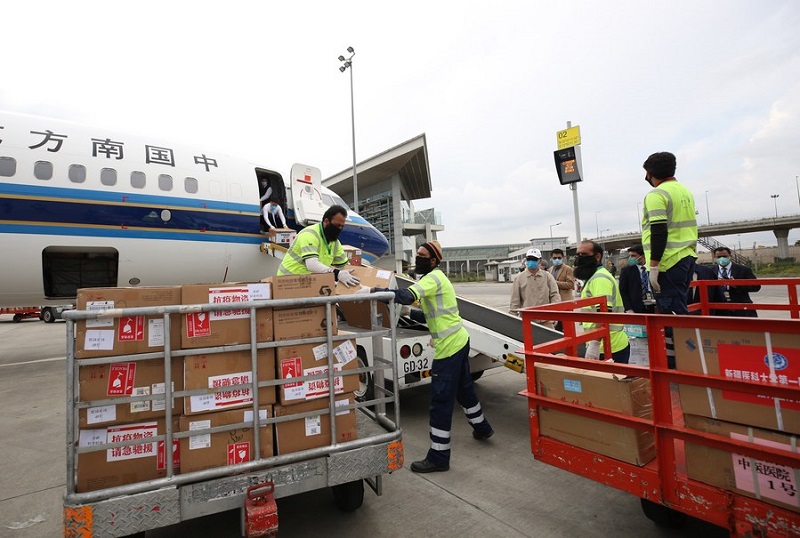No one in China would expect that the name of a Chinese film, Wolf Warrior, has been used as a metaphor by the western media and politicians to criticize China.
In the past one or two years, this metaphor appears in the western media and comes out of the mouths of western politicians to describe China’s diplomacy. More specifically, it targets both China’s foreign policy and Chinese spokespersons and diplomats. As a matter of fact, however, this metaphor is totally wrong.
It is well known that China’s foreign policy is based on its ancient civilization, which is characterized as 和 (harmony) 合 (cooperation). As a result, there is a vivid contrast between China and the United States. Jimmy Carter, former President of the US, said that the US has been at peace for only 16 of its 242 years as a nation. He even referred to the US as “the most warlike nation in the history of the world”, a result of the US forcing other countries to “adopt our American principles”.
Zheng He and his fleet made seven maritime expeditions to the outside world in the early decades of the 15th century and China never took an inch of foreign land. As a matter of fact, he was seen as an “Ambassador of Peace”. But history books all over the world tell us that, soon after Christopher Columbus “discovered” the New World in 1492, the continent of the Americas was conquered by Europeans and so many indigenous people were killed in the process of westerners’ colonization.
As early as 2011, China made the proposal to the US that, as major powers of the world, both need to construct what was dubbed as “new type of major-power relations”. The core value of this relationship is no confrontation and win-win cooperation. But it fell on deaf ears.
In 2013, President Xi Jinping proposed to build a community with a shared future for mankind. This long-term goal includes five worlds, i.e., a peaceful world, a secure world, a prosperous world, a culturally inclusive world and a clean world. Can this lofty ideal appear in a country with “wolf warrior” diplomacy? The answer is certainly “No”.

Workers unload the medical materials arrived with the Chinese medical expert team at the Islamabad International Airport in Islamabad, capital of Pakistan, March 28, 2020. (Photo/Xinhua)
One of the major characteristics of the so-called wolf warrior is its provocative or militant behaviors. China has never taken any actions like that. Instead, it wishes to make friends with others not only in words, but also in deeds. When the COVID-19 pandemic was raging in many developing countries, for instance, China sent medical teams, offered medical supplies and donated vaccines to them. China even expresses its willingness to help India fight against the pandemic although India provoked China and triggered a conflict last June in the border area.
Like economic policy, foreign policy of any country also needs to adjust to changing circumstances. It is natural that, with the rapid growth of the economy, China wishes to strive to do more for the purpose of protecting world peace and pushing for development. Therefore, it is wrong to compare China’s benign intention with the so-called “wolf warrior” diplomacy. As a responsible country, “China has always worked to safeguard world peace, contribute to global development, and preserve international order,” President Xi Jinping said at the ceremony marking the centenary of the Communist Party of China on July 1.
Foreign relations are based on mutual respect, equal treatment and reciprocity. China has been endeavoring to achieve the Chinese Dream of national revitalization. However, the United States has been trying all ways to contain China. It attempts to de-couple with China in technology, people-to-people exchanges and almost every aspect. At the same time, Mike Pompeo, former US Secretary of State, also “the worst secretary of state” described by the Washington Post, along with some other western politicians, have been demonizing China with fake news, rumors, and groundless accusation. As China’s Vice Foreign Minister Le Yucheng said recently, “Now that they are coming to our doorstep to flex their muscles, interfering in our internal affairs, constantly insulting and tarnishing us, we have no choice but to firmly defend our national interests and dignity.”
It should be judged by its own people whether a country’s diplomacy moves in the right direction. A survey by the Chinese newspaper Global Times indicated that 71.2 percent of the readers agreed with the conduct of Chinese diplomacy. Indeed, to defend China’s dignity, it is worthwhile to counter-attack any demonization.
The article reflects the author’s opinions, and not necessarily the views of China Focus.